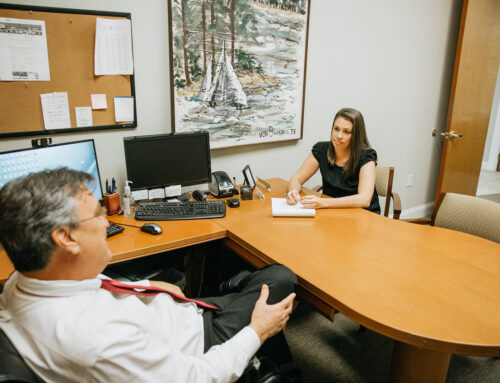Divorce is one of the most emotional events that many adults experience. Properly sorting out emotions and making rational long-term decisions can be difficult. This is why seeking the representation of a family law attorney is so important and why many people turn to mediation to help them resolve their conflicts with their spouses.
Because it is a viable solution for many, it is essential to understand family law mediation and how it works.
When is Family Law Mediation Appropriate?
Family law mediation – also known as divorce mediation – is a voluntary, non-adversarial process in which a qualified, trained mediator assists the two parties planning to divorce. The mediator oversees the discussions and ensures the spouses aren’t locked in a never-ending, circular battle with no resolution in sight. The mediator instead helps them find a way to work together to develop fair, equitable agreements for both parties and provide the best long-term outcome for the entire family.
As an alternative dispute resolution option, family law mediation provides valuable benefits to all parties involved in the divorce process. Most practically, mediation saves both time and money. The time invested in mediating can reduce or eliminate the need for litigation in court – which can get very expensive. Because mediation aims to directly but confidentially address the matters causing the most strife, the parties can work out their disagreements privately without exposing everything in a courtroom setting. It can ease stress and anxiety, which allows for more thoughtful and clear decisions for spouses and their children.
How Does Family Law Mediation Work?
Mediation sessions are held in a neutral location, often a mediator’s professional office or another private place where everyone feels free to speak. Mediation involves both parties to the divorce and the assigned mediator, although whether everyone is in the same room will depend on the situation. If tension is high and parties can’t stop fighting, having each party in a separate space is often more productive.
The mediator will outline the mediation rules and assure the parties that everything shared will remain confidential. The ground rules must be shared twice if parties are located in separate rooms. Once everyone understands the parameters of the process, the mediator will begin by discussing the first issue to be resolved. Each party will relate their side of the story and suggest a solution, giving the mediator a starting point for negotiation. The mediator will move back and forth between rooms if necessary until an agreement is reached on all issues. When everyone has agreed on all points, the resolution will be officially documented.
What Issues Are Covered in These Sessions?
Divorcing couples can address any situation related to their court case in family law mediation. The most common topics that require mediation are child custody, spousal support, and division of property, all of which can result in intense emotions and make conversation without a mediator challenging.
Without taking sides, a mediator can help each individual see and understand the other party’s perspective without the attached emotions and help point out unfair or unrealistic expectations.
Are You Considering a Sarasota Divorce?
Richard V. Ellis is an experienced family law and bankruptcy attorney based in Sarasota. He helps local residents navigate life’s most difficult circumstances with skill and compassion. Call today to ask any initial questions and set up a consultation. Just remember, you don’t have to face these circumstances alone. The team at Richard V. Ellis has the knowledge and experience you need to reach a resolution and be able to move on with your life.





